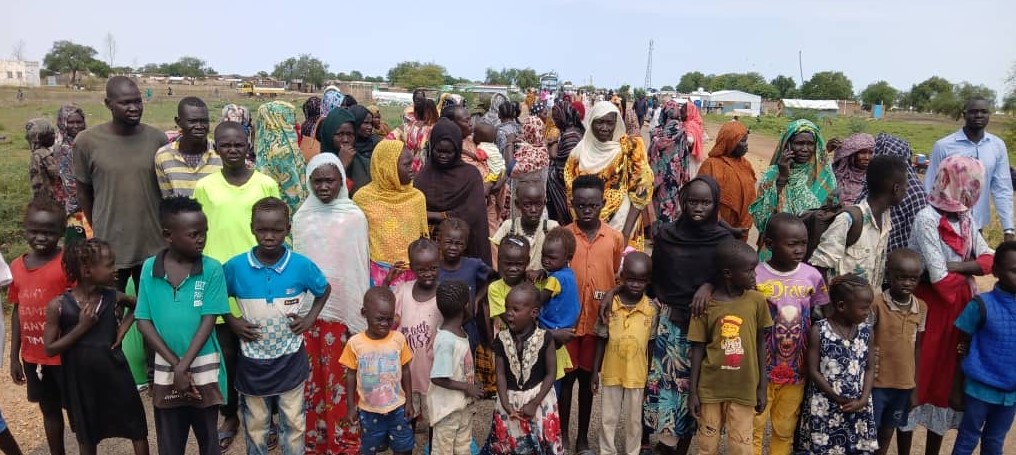South Sudanese authorities said on Tuesday they have reunited 71 children with their mothers, a week after the women were deported from Sudan without them during a wave of forced expulsions.
The reunification took place following a coordinated effort by officials from South Sudan’s Upper Nile state and their counterparts in Sudan.
The children had been left behind in Khartoum after their mothers were deported to South Sudan in early October, prompting outrage from local civil society groups and a government-backed mission to retrieve them.
Diing Deng Lueth, commissioner of Renk County in Upper Nile state, told Radio Tamazuj that a committee formed by South Sudan’s Humanitarian Affairs Commission and the county administration oversaw the return.
“The cooperation with White Nile state paved the way to reach the children in Khartoum,” Lueth said. “As part of the arrangement, 48 of the deported women were escorted back to Sudan to collect their children and return with them to South Sudan as families.”
Lueth praised the collaboration that helped resolve the ordeal and called for better coordination in future deportations to safeguard the dignity of South Sudanese citizens. He also announced the release of several buses that had been seized in connection with earlier deportations of women without their children.
Humanitarian organizations are now sheltering the reunited families in Renk County, providing food, medical care, and other aid before facilitating their return to their home regions, he said.
Stephen Elia, head of the humanitarian delegation that traveled to Khartoum, said Sudanese authorities had cooperated fully.
“We found great cooperation from officials in White Nile state, Karari locality in Khartoum, and immigration authorities, who facilitated our access to the children and our return with them to their homeland,” Elia said.
He said the team located 71 children—38 through initial efforts and 33 in Karari locality—who have now arrived safely in Renk County.
Civil society leaders in Upper Nile state welcomed the reunifications.
“We are happy to hear that the children who were left behind are now reunited with their mothers,” said Solana Jeremiah, head of civil society organizations in Upper Nile state. “We thank the authorities in Renk and in Sudan for making this possible.”
Jeremiah urged Sudanese authorities to respect human rights and adhere to international law in future deportations.
“Next time, people and governments should respect the law,” Jeremiah said. “We need both countries to implement the cooperation agreement signed years ago for the benefit of their citizens.”
Last week, Sudanese authorities deported more than 100 South Sudanese women from Khartoum, separating at least 61 of them from their children. The deportations came amid Sudan’s enforcement of its new immigration policies targeting foreigners.
The women were reportedly detained either on the streets or in their homes in the Sudanese capital before being transferred to detention centers and later deported to the Joda border area, which connects to South Sudan’s Upper Nile state.
The move was widely condemned by South Sudanese, including authorities.
Tens of thousands of South Sudanese remain in Sudan more than a decade after South Sudan gained independence in 2011. Many face legal uncertainty after becoming foreigners under Sudanese law.




